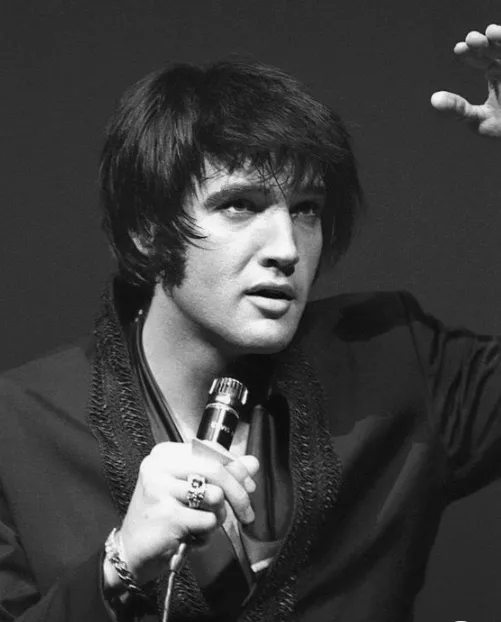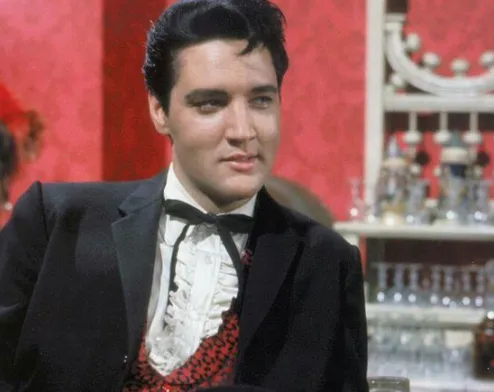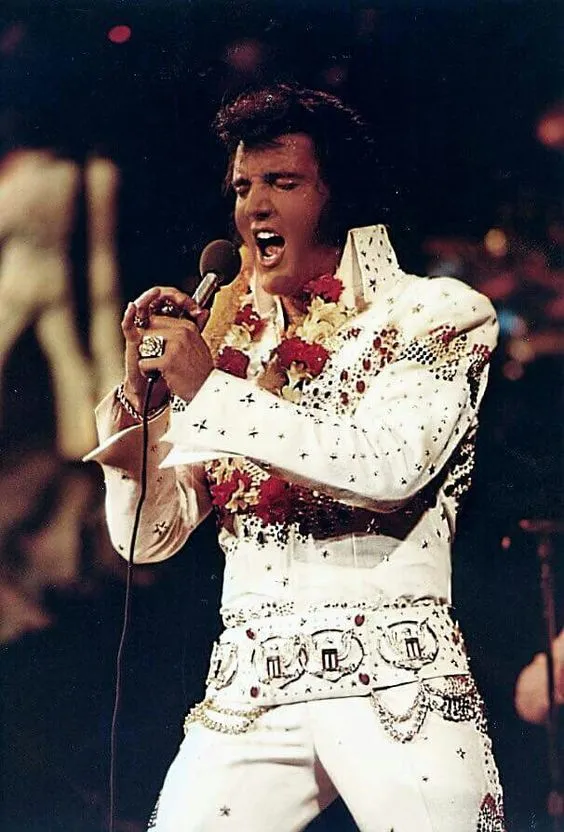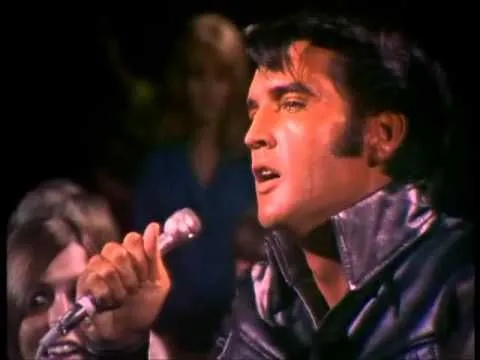About the song
(Watch the video below)
Elvis Presley, often hailed as the King of Rock and Roll, left an indelible mark on the music industry with his powerful voice, magnetic stage presence, and unparalleled charisma. Among his vast repertoire of hits, "He'll Have to Go" stands out as a testament to his versatility as an artist and his ability to breathe new life into classic songs.
Originally recorded by country music legend Jim Reeves in 1959, "He'll Have to Go" tells the story of a man who overhears his lover speaking to another man on the telephone. Faced with the heartbreaking realization that their relationship may be in jeopardy, he struggles to come to terms with his emotions and ultimately decides to end the call, knowing that he cannot compete with the other man for her affections.

Reeves' rendition of the song was met with critical acclaim and commercial success, topping the country charts and solidifying his reputation as one of the genre's most iconic voices. However, it was Elvis Presley's cover of "He'll Have to Go" that introduced the song to a wider audience and cemented its status as a classic of popular music.
Recorded in 1967 for his album "From Elvis in Memphis," Presley's version of "He'll Have to Go" showcases his unmatched vocal prowess and emotive delivery. From the moment he begins to sing, it's clear that he is fully immersed in the song's narrative, channeling the pain and longing of the protagonist with every word.
What sets Presley's interpretation of "He'll Have to Go" apart is his ability to infuse the song with a sense of urgency and passion that elevates it to new heights. His rich, velvety voice caresses each lyric, drawing listeners in and inviting them to experience the raw emotion at the heart of the song.

One of the most striking elements of Presley's rendition is his masterful use of vocal dynamics. As he navigates the song's tender verses and impassioned chorus, he effortlessly modulates his voice, building tension and suspense with each phrase. From the hushed whispers of "Put your sweet lips a little closer to the phone" to the impassioned plea of "Ask him to wait a moment, please," Presley's performance is a masterclass in vocal control and expression.
Accompanied by lush instrumentation that complements his vocals without overpowering them, Presley's rendition of "He'll Have to Go" is a study in restraint and nuance. The gentle strumming of acoustic guitars, the subtle swell of strings, and the understated percussion create a backdrop that is at once intimate and cinematic, allowing Presley's voice to take center stage.

But perhaps the most compelling aspect of Presley's cover of "He'll Have to Go" is the way in which he makes the song his own while still paying homage to the original. While Reeves' version is characterized by its smooth, crooning delivery, Presley injects a sense of urgency and intensity into the song that is uniquely his own. From his soulful ad-libs to his impassioned vocal flourishes, Presley leaves an unmistakable imprint on the song, turning a classic country ballad into a timeless piece of popular music.
In the years since its release, "He'll Have to Go" has remained a favorite among fans and critics alike, earning a permanent place in Elvis Presley's legendary catalog. Its enduring popularity is a testament to Presley's talent as a vocalist and interpreter of song, as well as his ability to transcend genre boundaries and connect with audiences on a deeply emotional level.
As listeners continue to discover and rediscover the magic of Elvis Presley's music, "He'll Have to Go" serves as a shining example of his lasting impact on the world of popular music. With its heartfelt lyrics, unforgettable melody, and Presley's incomparable vocal performance, it stands as a timeless tribute to the enduring power of love and longing.



